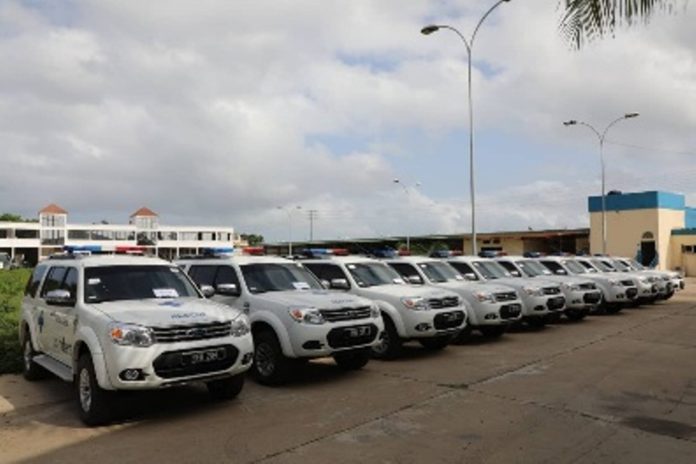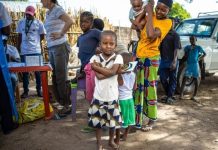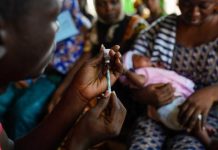By: Kebba AF Touray
The President of the Republic Adama Barrow, Friday September 14, 2018, commissioned a fleet of fourteen new ambulances earmarked for fourteen rural communities. This was done at a ceremony held at the State House grounds in Banjul.
Speaking at the ceremony, President Barrow emphasized that the health and well-being of the population remains his Government’s top priority; that transportation is an integral part of health care service delivery, particularly in the case of referrals, outreach, monitoring, and related services.
“These brand new ambulances are expected to replace the last batch of ambulances procured in 2009. I therefore urge the drivers, to handle them professionally and with the utmost care. I challenge Riders For Health (RFH), to continue to maintain the ambulances effectively. These ambulances will contribute immensely to the effective referral services for the Gambian community,” Barrow said.
He also indicated that availability, reliability and well-maintained vehicles contribute to health promotion, lauding the long-standing partnership between the Ministry of Health and Social Welfare and Riders for Health.
On her part, the Minister of Health and Social Welfare Dr Isatou Touray, said the commissioning of the ambulances by the President, marks the beginning of a series of activities by Government, in partnership with the private sector, NGOs and communities, to ensure access to universal health coverage goals.
Minister Touray explained that medical teams from health centers use trekking vehicles provided or maintained by RFH, to visit outreach clinics in order to conduct reproductive and child health services; that as such, the ambulances will help reduce the burden and smoothen the execution of these health services; that the number of primary health care villages has significantly risen to 810, from 492 in 2008, and disclosed that without the availability of reliable and well-maintained vehicles for trekking and supervision of health service delivery, such increases in the health care system which is pivotal to the drive to attain universal health coverage, may not be possible.
According to the Minister, the ambulances that would be deployed to hospitals and health facilities across the country, will facilitate effective evacuation, training and communication, in order to save lives of the citizenry, especially women and children.
The Country Director of RFH Therese Drammeh, expressed delight at the commissioning and assured of a continued partnership with the Ministry; that their service has become a model for other African countries, including Kenya, Mozambique, Lesotho, and Zimbabwe.





















